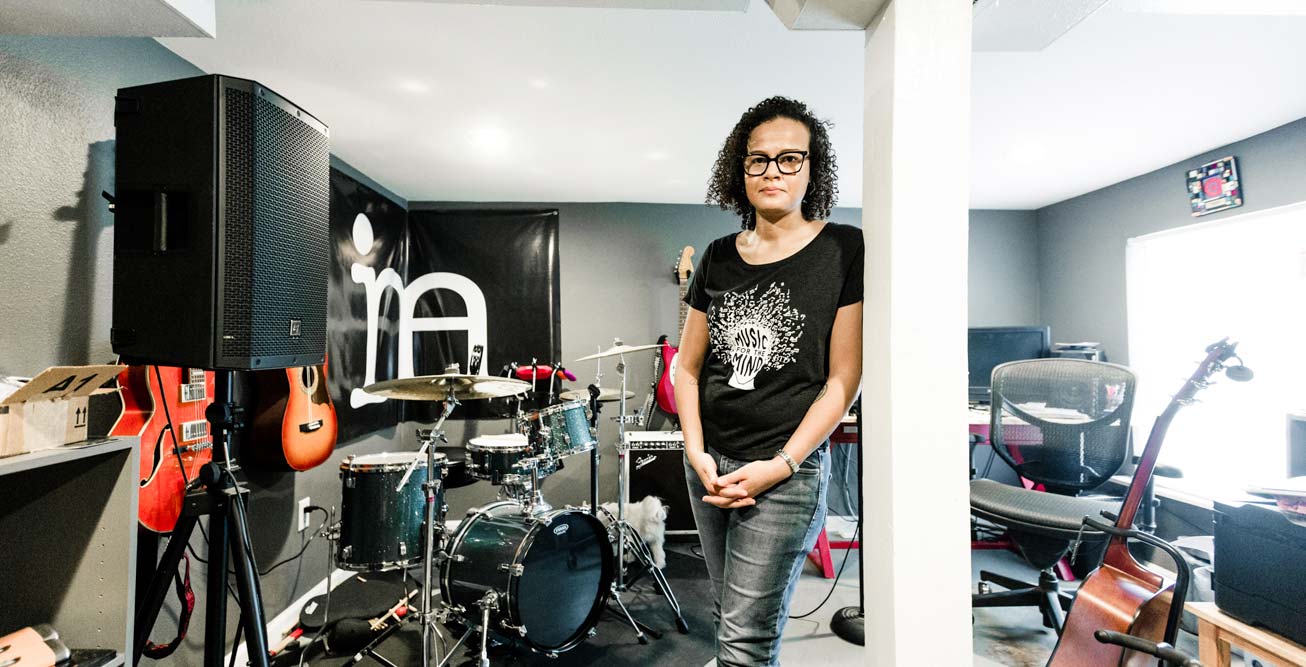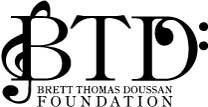Mia Borders

Describe your music in three words.
Funky, intimate soul.
What is your earliest music memory? Or, perhaps, what’s the earliest musical experience that inspired you to pursue music professionally – that “I want to do that” moment?
Though music permeates all of my early childhood memories, the moment when I realized I wanted to be a professional musician didn’t come until the sixth grade. Our school choir had a performance and a handful of parents complimented me specifically. They called me a great singer and commended my stage presence. The thing is, I didn’t have a solo. I was just another face in the crowd – or so I thought. Something about what I was doing reached them. I realized that the passion I had for music was something that I couldn’t help but convey. They saw that.
Your 2016 album, “Fever Dreams,” was highly lauded around the Gulf Coast and beyond, and you’ve been releasing albums for over a decade now – including a new record, “Good Side of Bad,” that released Spring 2019. How has your music developed or changed through the years?
I’ve gotten more comfortable in my own skin. I’ve always been self-conscious about my music. The fear of rejection stems from my experiences in grade school and it kept me from performing in public for a long time. Each release is just that: a release. I lose more of that fear every time I put something out and people connect to it. I think that translates to the recorded music because I’m more confident in myself. There are more vocal tracks, less instrumental solos by other musicians; I take on more roles in the studio, and the music sounds more like what I want it to as opposed to producers or the industry as whole.
In addition to songwriting, you also hold a degree in English and are a published writer. Can you describe your creative process as it relates to writing as a whole?
I’ve always loved telling stories. Sometimes those stories manifest themselves as songs; other times it’s an essay, poem, or a screenplay. For the most part, it doesn’t feel like I even have control over it. I’m just a conduit. When I feel like I have something to say, I know whether to work it out on my guitar or in my word processor.
Allen Toussaint once stated, “Music is everything to me short of breathing. Music also has a role to life you up-not to be escapist but to take you out of misery.” With that said, how has music gotten you through hard times in your life?
There’s a song by Gary Clark, Jr. called “The Healing.” The hook is, “This music is my healing.” That’s exactly how I feel. If I’m feeling dark, I can write something down, sing it, cry through it, and put it to bed. If it becomes something that we release and play live, even better. The more I sing it, the more I can move through it and move past it without trying to ignore it. I lost my mom at a very young age, I was in a toxic relationship in my twenties, and I struggled with alcohol dependency until the age of 25. Music was a tremendous part of those respective healing processes.
When you hear the phrase “Music for the Mind,” what does it mean to you on first impression?
It made me think of music as a therapy, to which I completely relate.
Following up on that, what is a message you hope others receive through your music?
A fan recently posted that my music had gotten him through many suicidal nights. He didn’t think I would ever see that, but I did and it hit me so hard. We exchanged a few messages and I realized the reach of music. He’s never seen me play live; I’ve never toured in his hometown, but he somehow found my music and found the meaning within. I only ever wanted people to hear me and feel better about their day. That’s what my favorite music has always done for me. It gives me a few moments where I’m not worried about my bills, stressed out about my family, or freaking out about the state of the world. I hope to do that for others.
In addition to music as a healing medium, are there other resources that you use to care for your mental health?
I’m trying to get better about my self-care. A healthy diet is important for me, though it’s probably what I struggle with the most. I love getting massages regularly (who doesn’t?), salt baths, ice baths, paraffin dips, physical activity, and breathing exercises. I deal with chronic pain, which can really get me down, so taking care of myself not only helps me physically feel better, but it also helps me feel mentally stronger. When we take care of ourselves, we realize that we are worth taking care of.
Here’s a fun one: You’re singing karaoke on an off-night – what’s your go-to song?
“Miami” by Will Smith. It’s a ridiculous song and I don’t know why I know all of the words.
Any last thoughts/comments you’d like to share regarding these questions, music, mental health, both combined, or anything at all?
I try be as open and as honest as possible when it comes to my struggles with anxiety and depression in an effort to help destigmatize it as much as possible. We all have bouts of sadness and/or anxiety sometimes or another and talking about it openly can only help. BTD Foundation is a great organization and we need more like it and more programs like Music for the Mind.
Mia Borders is a New Orleans-born-and-bred songwriter, vocalist, guitarist, performer, and community activist. Mia’s music is a soulfully-refreshing blend of blues, soul, rock, RnB, and Americana styles resulting in authentic, honest lyrics and poignant storytelling. You can hear and learn more from Mia at:
Official Website: https://www.miaborders.com/
Facebook: https://www.facebook.com/miabordersmusic/
Instagram: https://www.instagram.com/miaborders/
Spotify: https://open.spotify.com/artist/4H6QeFQavHaFfkoYwWWA16
Soundcloud: https://soundcloud.com/miaborders
All photos by Jose Cotto for the Brett Thomas Doussan (BTD) Foundation.

